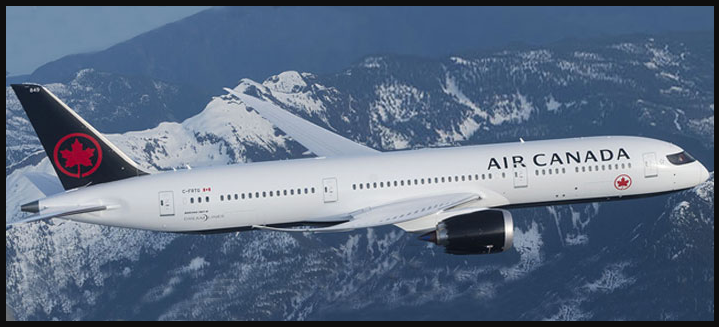US DOT fined 250k$ to air Canada for flying over Restricted or prohibited zone of Iraq airspace
Air Canada experienced potential financial losses due to operating flights over prohibited or restricted airspace in Iraq. The U.S. Department of Transportation (DOT) subsequently fined the airline $250,000 for this violation. It was discovered that the airline had operated direct flights between Dubai International Airport and Toronto Pearson International Airport (YYZ) through airspace that had been restricted by the FAA for U.S. carriers.
.

Specified airspace in Iraq was prohibited for U.S. operators to conduct commercial airplane operations. Despite these restrictions, aircraft with the designator code of United Airlines Holdings Inc. were flown through this prohibited airspace between last of 2022 and early 2023. A significant number of flights were operated in violation of these airspace restrictions.
Air Canada response
Air Canada spokesperson Mr. Peter Fitzpatrick said via email, “These incidents were brief, unplanned, and inadvertent.” He explained that the occurrences were due to several factors, including air traffic control restrictions and the transition to a big jet aircraft that required more time to gain safe altitude, Fitzpatrick emphasized, “Safety cannot be compromised.
Based on a consent order between the carrier and the department, the airline informed the U.S. government that it took immediate action upon receiving notification from the DOT regarding the potential violations. The airline also reminded its crews of the requirement to avoid the prohibited airspace and initiated an investigation to determine why some flights deviated from the carrier’s established policies, among other corrective actions, as outlined in the consent order between the department and the carrier.
Prohibited airspace of Iraq
There are several reason a particular air space declared prohibited zone. Iraq airspace Is one of prohibited flying zone where civil aircraft are not allowed to operate. Many other countries also issued airspace warning advising not to operate at this country. Specially at lower altitude.
The primary risk of accidental shootdown arises from the potential misidentification of civil aircraft by military forces, both domestically and internationally. This threat is exacerbated by the proliferation of portable anti-aircraft weaponry, which can be acquired by terrorist organizations and used to target civilian aircraft
Drone attacks launched from neighboring countries, such as Turkey and Iran, pose a significant threat to civil aviation in the northern regions of Iraq. These attacks can potentially lead to the misidentification and targeting of civilian aircraft
